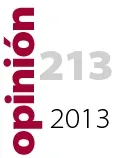Time to Reform State Subsidies in North Africa

Francis Ghilès
Senior Research Fellow, CIDOB
15 November 2013 / Opinión CIDOB, n.º 213 / E-ISSN 2014-0843
Statistics do not always lie, contrary to popular belief. North Africa’s addiction to subsidies –on fuel and food produce in particular– is undermining any rationality that might be expected from government policies. The prices distortions which result are also fuelling vast networks of smuggling which state authorities complain is a gangrene but which they do nothing to stop.
Just over three months ago, the Algerian Minister of Energy, Youssef Yousfi indicated that, last year, 1.5bn litres of road transport fuel found its way into neighbouring countries. Any visitor to Tunisia’s eastern frontier can vouch for the huge plastic containers of petroleum from Algeria pilled up in the middle of Tunisian towns, which retails at a cheaper price than the official price in the country. Any visitor to the western Algerian town of Tlemcen witnesses drivers queuing up at 6am in the hope of filling their tanks. Huge lorries meanwhile cross the nearby frontier to sell road transport fuel in Morocco –a boarder officially closed for more than a decade. Such a situation is hardly surprising considering that gasoline prices at the pump stand at a ratio of 1 to 3 compared with Tunisia and 1 to 5 compared to Morocco. It is 1 to 8 compared with southern Europe. Increasing boarder policing is of little use since only a very high level of complicity among Algerian and Moroccan security officials on both sides of the boarder can possibly explain the sorry state of affairs the ordinary Algerian is paying a heavy price for.
At a time of declining production and exports of oil and gas in Algeria, the growing economic inefficiency and social inequality such subsidies entail offer strong arguments to those who want to see them phased out. Leading employers groups such as the Forum des Chefs d’Entreprise and independent economists such as Notre Algérie Bâtie sur de Nouvelles Idées (NABNI) are trying their best to initiate a public debate to little avail so far. The fear of social trouble and a forthcoming presidential election have combined to scare the government which is thus powerless to act. It fears it will be damned if it moves and damned if it does not. The distortions meanwhile get worse.
The distortions in the energy sector, the key engine of Algeria’s economy and the country’s bread earner abroad (95% of the value of exports) are glaring. The wholesale price of price of domestic gas in Algeria is $0.50 per million British Thermal Unit MBtu), in Iran it is $3.75. In Egypt the price is set to double for energy intensive units, to $6MBtu. Iran has the largest gas reserves in the region but its policy, like that of Egypt suggests that being richly endowed in gas should no longer be a key determinant of domestic prices. The Gulf countries and Saudi Arabia face the same challenge.
In North African countries which produce little or no oil or gas, the dilemma is no less acute. In Morocco state subsidies for oil and gas have been multiplied by three to Dirhams 30bn between 2007 and 2011. Subsidies aimed at holding down the price of food and hydrocarbons rose from 29.8bn Dirhams in 2010 to 58bn in 2012. They account for 15% of budget expenditure. Here again, the government dare not risk social trouble at a time when the broader Arab world is in turmoil.
In Tunisia, beset by unstable government in the wake of the fall of Ben Ali nearly three years ago, state subsidies for food and energy have more than trebled to 7bn Dinars between 2010 and 2012. They now represent 30% of the budget expenditure. Studies in Tunisia suggest that less than 10% of subsidies go to the poorer families, 60% benefitting the middle class.
The huge distortions such subsidies introduce into any idea of good economic governance in the Maghreb and the broader Arab world should be linked to the fact that the MENA region boasts the largest number of unemployed men and women in the world, the largest number of young people unemployed and the largest informal sector. In Algeria, where women are less likely to be employed than in the two neighbouring countries, the informal sector account for 11% of total employment. In Tunisia the figure is a staggering 53%, a figure which can only increase if political stability does not return soon and in Morocco 33%. If policy making were more rational and efficient, much of the money which goes towards subsidies would be earmarked for public goods such as education and health which benefit the population across the board and build the foundations for a more robust economy.
Subsidies cannot continue growing at the rate they are. In Algeria, electricity consumption, essentially predicated on natural gas, cannot continue rising at more than 10% a year without breaking the bank. It says much about the sorry state of governance across the MENA region that countries which have not witnessed major political upheavals are just buying time while those which have, notably Tunisia are pursuing exactly the same policies. The need to treat the disease of subsidies which is destroying any serious policy making across the region may lead to social and political turmoil. But that is as likely to happen if no reforms are made soon. The next year will tell whether policymakers dare grasp the nettle of subsidy reform.